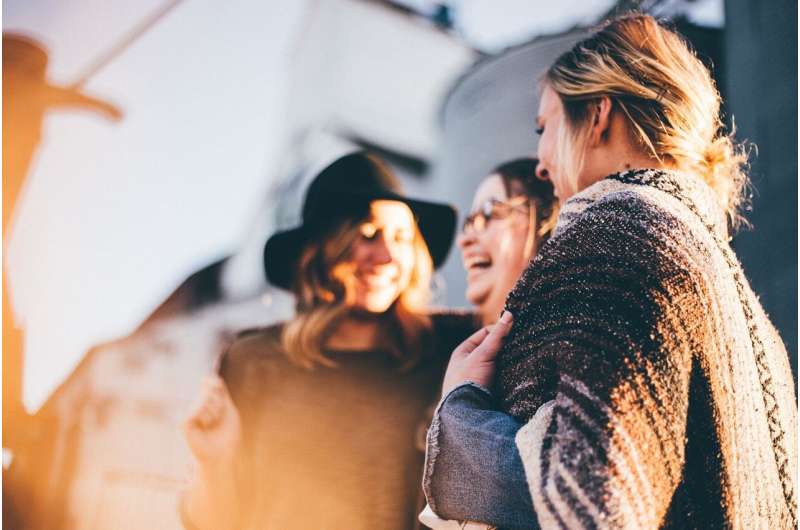Why are more young people getting coronavirus?

A surge of coronavirus cases among young people is leading to a generational blame game as California and other states grapple with a second wave of the virus.
Reports of outbreaks across the country tied to fraternity houses and college-town bars have helped fuel a perception that people in their teens and 20s—who are far less likely to die from COVID-19 but can still suffer debilitating bouts of the virus or pass it along to others who are more vulnerable—have thrown caution to the wind because they don't feel threatened by it.
A long list of other factors may also be at play in the increase, however.
"I see plenty of irresponsibility going on across the age spectrum as we have opened up," said Dr. Kirsten Bibbins-Domingo, chair of the University of California San Francisco's Department of Epidemiology and Biostatistics. "I don't think it's helpful to demonize one group or another."
An analysis released last week found 44% of new coronavirus cases in California were among people 34 or younger, compared to 29% a month ago. Meanwhile, the analysis of California Department of Public Health data, conducted by infectious disease epidemiologist George Lemp, found the share of cases from people over 50 was dropping.
At a press conference Friday, Gov. Gavin Newsom said the state is seeing an alarming increase in coronavirus cases among people under 35, which he called "that age cohort that believes in many cases that they are invincible, and they are somehow immune from the impacts of COVID-19."
But the increase tracks with what Bibbins-Domingo said she expected as more businesses reopened.
During that process, she noted that government and public health officials told people at higher risk from coronavirus—particularly those who are older—that they should still stay at home to avoid infection. Younger people at lower risk, meanwhile, were given the OK to go out again, making it more likely they would catch the virus.
Now, after seeing a massive increase in new coronavirus cases last week, states and counties are rethinking their reopening plans.
"The age doesn't concern me as much as the big rise in cases," Bibbins-Domingo said.
Another possible explanation for the rise among young people: It's a lot easier to get a COVID-19 test these days, which has meant people with milder or even asymptomatic cases, who skew younger, are finding out they have the virus, Bibbins-Domingo said.
And the jobs young people do could be playing a role as well. Nationwide, only about one-third of workers are in the 16 to 34 age group, but those in essential, public-facing jobs—as well as industries that have started reopening more broadly in recent weeks—tend to be younger.
In retail, where officials have been easing lockdown restrictions, about 56% of workers at clothing stores are 34 and younger, as are 70% of workers at shoe stores and 60% of those at electronics stores.
Nearly two-thirds of restaurant workers are 34 or younger, as are nearly half of grocery store employees, according to data from the U.S. Bureau of Labor Statistics.
Workers in food service "are so exposed," said Sameer Shah, the 36-year-old co-owner of Voyager Coffee, who noted the business model of a coffee shop relies on serving perhaps hundreds of customers each day—all of whom could pose a risk in the coronavirus age. Nearly every worker at Voyager's three cafes is under 35.
To lessen risk, Voyager workers serve customers at doorway counters, and don't let people inside their cafes. Shah said it seems like irresponsible behavior from customers is becoming more common as the pandemic has dragged on—but he didn't chalk it up to any particular age group.
"People are just not quite as on guard as they were before," Shah said.
Still, there is some evidence that young people are more likely to take risks during the pandemic: While most people across all age groups report they are consistently wearing masks, avoiding groups and staying at least six feet away from others, people from 18 to 24 were much less likely than older adults to say they were doing so, a May CDC survey found.
Then again, millennials from 25 to 34 tend to be more cautious—they trailed only people 65 and older in their likelihood to report they were avoiding groups and wearing masks. (People from 45 to 54, the age range 52-year-old Newsom falls into, reported the second-lowest levels of compliance with those guidelines.)
Cinque Curry, a 25-year-old construction worker from Oakland, admitted he didn't take coronavirus very seriously at first—he went on a cruise in February, and traveled to Las Vegas in March, just as casinos started shutting down.
But then, Curry said, "I started to really think about my grandmother," who was terrified of the virus. Seven of his family members across the country fell ill with COVID-19. All have since recovered.
Now, Curry said, he wears a mask, doesn't venture out much and takes other precautions. On Saturday, he was enjoying some takeout tacos on a bench in Jack London Square with plenty of distance from other groups; unlike some peers, Curry isn't jumping at the chance to start dining in restaurants or drinking in bars again.
"I feel like I've taken it as seriously as I can," he said.
©2020 The Mercury News (San Jose, Calif.)
Distributed by Tribune Content Agency, LLC.





















